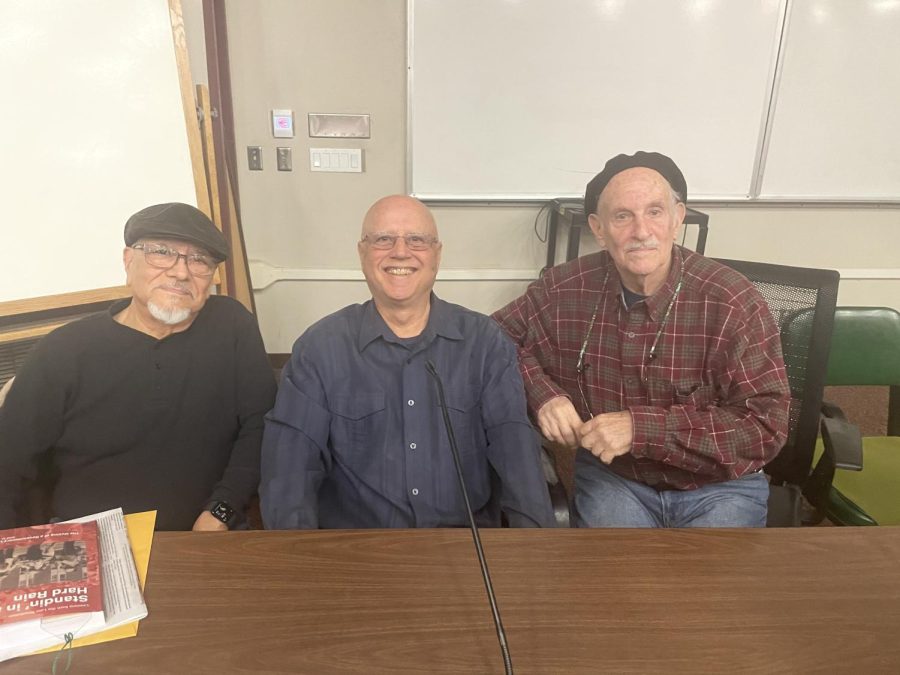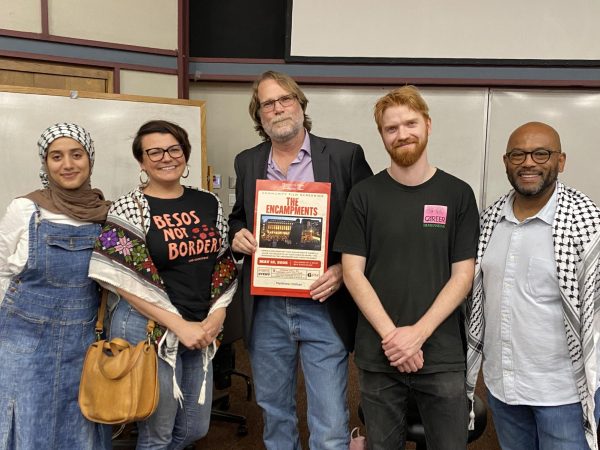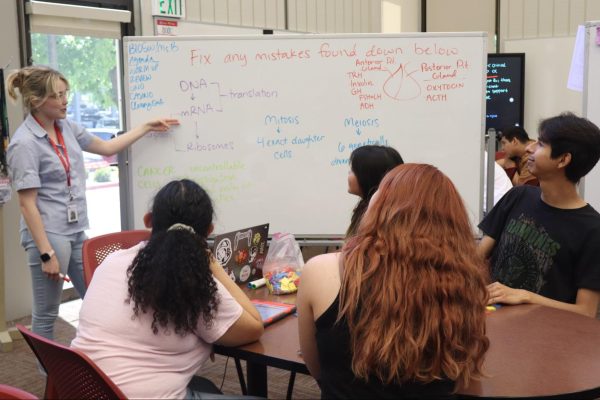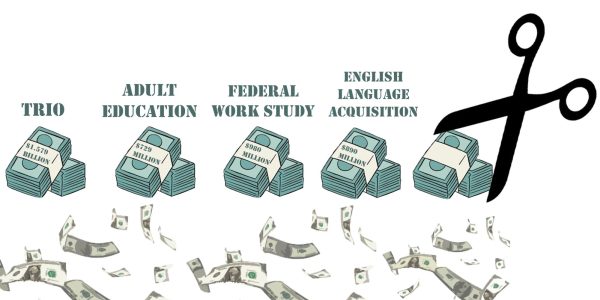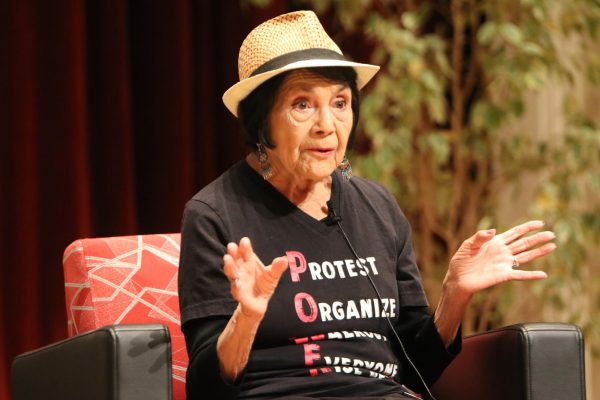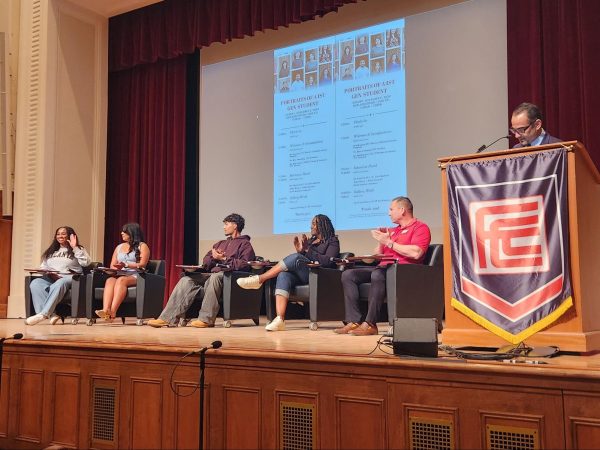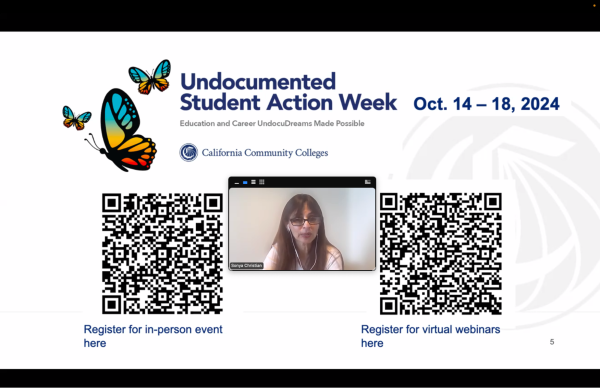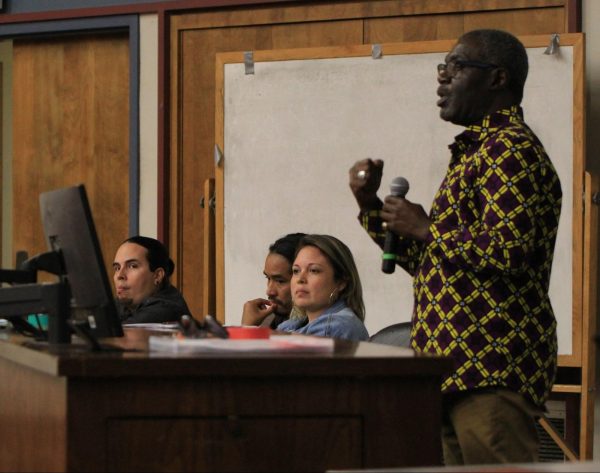Anti-War Panel Discussion Held at Fresno City College
Photo by: maria k
From left to right: Raul Pickett, Mike Rhodes, Joel Eis after the discussion panel on March 2.
More than 100 people filled Fresno City College’s Forum Hall on March 2 for a panel discussion on the Anti-War Movement of the 1960’s and 1970’s.
Panelists, Raul Pickett, Doug Rippey, and authors Joel Eis and Mike Rhodes, as well as professor Dr. Micheal Essinger, were on hand to discuss their time and contributions to the anti-war movement of the Vietnam War.
“One of the things that’s important in history is to find a place for you to attach yourself to the history,” Essinger said. “This is the biggest problem with the way we teach American history, we teach it about these old dead white guys that look like me, and we talk about it many miles away.”
The panelists, all Central Valley natives, talked about what was happening in Fresno during those turbulent times. From people being arrested for peaceful marches to a vast amount of Fresno State faculty under fire for being “too liberal.”
During the panel, Pickett described what it was like being a Mexican American opposed to the war during that time.
“It was a time of change and for the Mexican American it was a reflection on our history, an assessment of our status in society and our pursuit for social change.” Picket said. “To many Mexican American youth, enlisting was an opportunity to prove yourself.”
Pickett saw many of his young friends go off to war and never return, or return severely changed. He himself chose not to go and began his anti-war protesting efforts.
Keynote speaker Eis, successful author and playwright was there with his most recently published book, “Standin’ in a Hard Rain: The Making of a Revolutionary Life,” which is his memoir on his time of active radicalism in the 1960’s.
“There’s nothing more important to your survival than learning about the victories and mistakes of the past,” Eis said. “We have to work together in a coalition for political power, when we have political power, we can make change.”
This panel discussion was sponsored by The FCC Campus Community Colloquium.
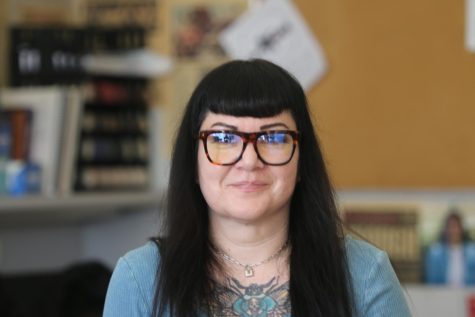
Maria was born and raised in Bakersfield California. She lived there most of her life while moving briefly to other areas such as Reno Nevada, Amarillo...

